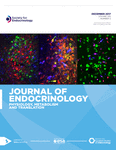Effects of obesity and estradiol on Na+/K+-ATPase and their relevance to cardiovascular diseases
- Milan Obradovic,
- Predrag Bjelogrlic1,
- Manfredi Rizzo2,3,
- Niki Katsiki4,
- Mohamed Haidara5,6,
- Alan J Stewart1,
- Aleksandra Jovanovic and
- Esma R Isenovic
-
Laboratory of Radiobiology and Molecular Genetics
, Institute Vinca, University of Belgrade, PO Box 522, 11000 Belgrade, Serbia
1 School of Medicine , University of St Andrews, St Andrews, UK
2 Department of Internal Medicine and Medical Specialties , University of Palermo, Palermo, Italy
3 Euro-Mediterranean Institute of Science and Technology , Palermo, Italy
4 Second Propedeutic Department of Internal Medicine , Medical School, Hippokration Hospital, Aristotle University of Thessaloniki, Thessaloniki, Greece
5 Department of Physiology , College of Medicine, King Khalid University, Abha, Saudi Arabia
6 Department of Physiology , Faculty of Medicine, Cairo University, Cairo, Egypt
- (Correspondence should be addressed to E R Isenovic; Email: isenovic{at}yahoo.com)
Abstract
Obesity is associated with aberrant sodium/potassium-ATPase (Na+/K+-ATPase) activity, apparently linked to hyperglycemic hyperinsulinemia, which may repress or inactivate the enzyme. The reduction of Na+/K+-ATPase activity in cardiac tissue induces myocyte death and cardiac dysfunction, leading to the development of myocardial dilation in animal models; this has also been documented in patients with heart failure (HF). During several pathological situations (cardiac insufficiency and HF) and in experimental models (obesity), the heart becomes more sensitive to the effect of cardiac glycosides, due to a decrease in Na+/K+-ATPase levels. The primary female sex steroid estradiol has long been recognized to be important in a wide variety of physiological processes. Numerous studies, including ours, have shown that estradiol is one of the major factors controlling the activity and expression of Na+/K+-ATPase in the cardiovascular (CV) system. However, the effects of estradiol on Na+/K+-ATPase in both normal and pathological conditions, such as obesity, remain unclear. Increasing our understanding of the molecular mechanisms by which estradiol mediates its effects on Na+/K+-ATPase function may help to develop new strategies for the treatment of CV diseases. Herein, we discuss the latest data from animal and clinical studies that have examined how pathophysiological conditions such as obesity and the action of estradiol regulate Na+/K+-ATPase activity.
- Received in final form 29 May 2013
- Accepted 19 June 2013
- Made available online as an Accepted Preprint 19 June 2013
- © 2013 Society for Endocrinology











